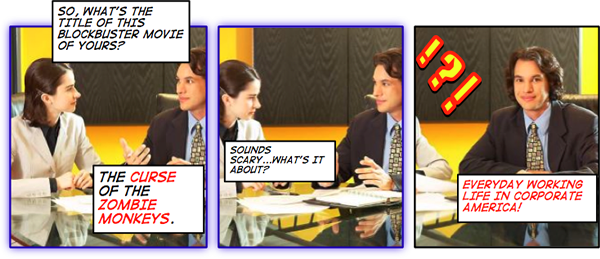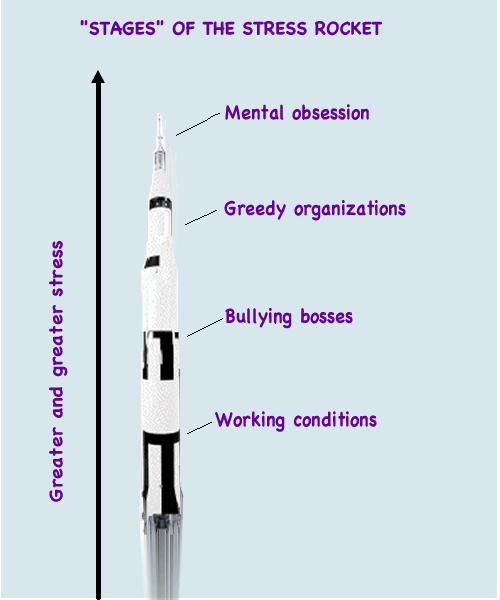How to save yourself from being hooked again
If you ever say, too late, “It’s got me again,” this article is for you.
What do people and fish have in common? They’re both easily caught with baited hooks. In the human species, the bait doesn’t even need to be attractive or edible; just something that sparks an emotional reaction. One moment you’re sitting there, relaxed and content, and the next you’re being led by the nose by an advertising jingle, a newspaper headline, some emotional slogan, or a comforting habit. If you want to lower your stress—and stay in charge of your life and choices—it’s a good idea to understand what hooks you and how it happens.What are hooks? A hook is anything that grabs us and trips us into a thought or an action without any conscious choice intervening. Every writer tries to start anything from an article to a major novel with a good hook: something to catch the reader’s attention and draw him or her into reading more. Headline writers seek for that elusive phrase that makes the most casual reader want to find out more. Advertisers pay big bucks for an idea that can grab people’s attention and make them listen. People who are hooked find themselves going along with the message regardless of pretty much anything else.
Throughout every day, we’re all surrounded by baited hooks trying to snatch our attention and direct it where someone else wants it to go. We think we get pretty smart about avoiding them. Then we wake up, our emotions roiling and our blood pressure on critical, and groan: “Oh no, it got me again!”
What happened? Something grabbed you and set you going down a path you’ve probably followed all too many times before, and which you swore to yourself that you would never go down again.
The process is rather simple, but that doesn’t make it any less aggravating. Somewhere in your mind is a trigger: a word, a feeling, a concern, a look, an idea. That trigger is connected to some deeply-held value that produces a habitual emotional reaction. Bait the hook with the trigger and the reaction kicks in instantly. You grab at it and get soundly hooked without any conscious choice on your part—at least until it’s too late. Your emotions propel you towards the hook and you are soon firmly fixed. You even do it willingly, since the value that was triggered is something important to you; something you want and feel is important.
Typical hooks
The only way to prevent this process is to recognize what hooks you most easily, and put yourself on your guard when a situation arises where those hooks are likely to be around. Everyone’s hooks are slightly different, but here are some common ones to set you going on your search for the hooks most likely to get you again and again.- Ego. Many, many people are hooked by their own sense of self-importance. They can’t resist getting involved, even in things of no real concern to them or in situations they know are dangerous. It’s a form of showing off that usually ends in a mess.
- Desire. When you want something—money, power, status, love—anything that even hints that it might be linked to what you want will grab you in an instant. Greedy people are some of the most gullible and easily-manipulated folk around.
- Being a savior. Lots of people love the idea that they might take charge of a bad situation and clear it up right away. Show them someone in trouble and they can’t resist the temptation to step in and save the day. If it worked, it would be okay. Sadly, good intentions tend to be all they have to offer. When the rescue turns sour, you have two miserable people instead of just the one.
- Gossip. This is one of the commonest hooks. It’s linked to people’s love of drama and being “in the know.” They aren’t so much hooked by the information itself as by the image of themselves creating a great dramatic scene as they pass it on to others. They’ll burst through the door, shouting: “Hey! You’ll never guess what I heard.” People will be impressed—perhaps. Mostly gossip just causes misery and stress and marks out those who spread it as malicious jerks.
- Boredom. When you’re bored, almost anything can hook you if it seems more exciting than whatever you’re doing: scanning e-mails, reading jokes on the Web, sending someone a silly message. So many people today are bored that anything promising excitement can draw their attention like a magnet.
- Ambition. Wanting to get ahead isn’t a bad thing, but it does make you rather easy to hook. Whatever starts you feeling that it will move you towards your goal is going to catch your attention and hold it. For those who play office politics, there are even more hooks, mostly linked to hopes of increasing personal influence and power.
How to escape being hooked
How do you either avoid the hook or unhook yourself after you’ve been caught?- Sit down and work out your personal hooks. Ask your friends. Listen carefullly to whatever you hear, however humiliating. Most hooks are totally childish, yours included. You aren’t judging them, just knowing what to avoid.
- Recognize the physical and mental signs of being hooked: telling yourself it’s “just this once;” over-reacting to minor problems or set-backs; jumping into something without any prior thought; spending time on things that you’ve already decided aren’t worth it.
- As soon as you spot a hook, or realize it’s already in your mouth, stop. Don’t struggle, don’t complain, don’t get mad. Just stop. Then walk away. Put it right out of your mind, if you can. Let your emotions simmer down. Trying to fight it will only drive it in deeper. Letting go and moving on is the only way.
- Stop behaving like a helpless victim. Take time to work out what you should do, then do it. Put yourself back in charge. You can’t stay hooked if you’re awake, alert, and fully in control of yourself.
- Explore what you did to let yourself be hooked (or get into a hook-able situation). No one forces a hook into a fish’s mouth. They take it in themselves. You did too. Everyone who gets hooked did so voluntarily. The more you understand what caused you to do that, the more easily you’ll avoid it in the future.
- Resolve to keep avoiding the hooks. Positive reinforcement works. The more power you take over your own life, the less events and other people will be able to hook you and turn you into a victim.
So what are your hooks? If you know, and are willing to share them, tell us. It might help others to avoid similar instant reactions and the problems that they cause.
Labels: burnout, self-preservation, stress, work choice











